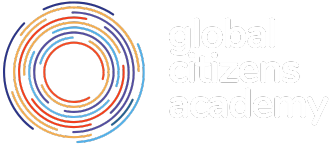
In an increasingly interconnected and interdependent world, the role of education in fostering global citizenship has never been more critical. From high school to higher education, equipping individuals with the knowledge, skills, and mindset to navigate global challenges and contribute positively to society is essential. In this blog, we explore the importance of education for global citizenship, from understanding global issues to embarking on specific learning pathways and career pathways to prepare for the global marketplace.
Education plays a vital role in helping individuals understand the complex global issues facing our world today. From climate change and poverty to human rights violations and political instability, these challenges require informed and engaged citizens who are equipped to address them effectively. By integrating global perspectives into the curriculum and fostering critical thinking skills, education empowers individuals to analyze and evaluate global issues from multiple angles, develop empathy for others, and take action to create positive change.
Skill Development for Global Citizenship
To develop the knowledge and skills necessary for global citizenship, individuals can embark on specific learning pathways tailored to their interests and goals. Whether studying international relations, environmental science, or global health, these pathways provide opportunities to deepen understanding of global issues and cultivate expertise in areas relevant to the global marketplace. Through interdisciplinary approaches and hands-on learning experiences, students gain practical insights and perspectives that prepare them to tackle real-world challenges and contribute meaningfully to global society.
In today’s globalized economy, preparing for the global marketplace is essential for success. Education plays a crucial role in equipping individuals with the skills and competencies needed to thrive in diverse and dynamic environments. From language proficiency and cross-cultural communication to digital literacy and problem-solving skills, education helps individuals develop the capabilities required to navigate global markets, collaborate with international partners, and adapt to changing economic landscapes. By offering specialized programs and career pathways that align with global industry trends and demands, educational institutions prepare students to excel in the global marketplace and make valuable contributions to global businesses and organizations.
Ultimately, education is a powerful tool for empowering individuals to become active and engaged global citizens. By fostering a sense of responsibility for the well-being of others and promoting values such as empathy, tolerance, and social justice, education cultivates a global mindset that transcends borders and promotes solidarity with people around the world. Through experiential learning opportunities, service projects, and international exchange programs, education provides individuals with the opportunity to engage with diverse cultures, gain new perspectives, and develop a sense of shared humanity. By investing in education for global citizenship, we can empower individuals to build a more inclusive, equitable, and sustainable world for future generations.
As we navigate the complexities of an increasingly interconnected and interdependent world, the importance of education for global citizenship cannot be overstated. From high school to higher education, education plays a crucial role in fostering understanding of global issues, embarking on specific learning pathways, and preparing for the global marketplace. By empowering individuals with the knowledge, skills, and values necessary to navigate global challenges and contribute positively to society, education lays the foundation for a more just, equitable, and sustainable future for all. As we work towards building a more inclusive and interconnected world, let us recognize the transformative power of education and its critical role in shaping global citizens who are prepared to make a difference in the world.
